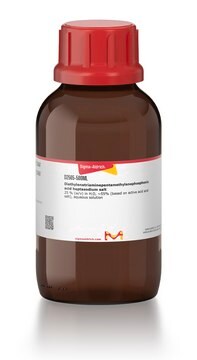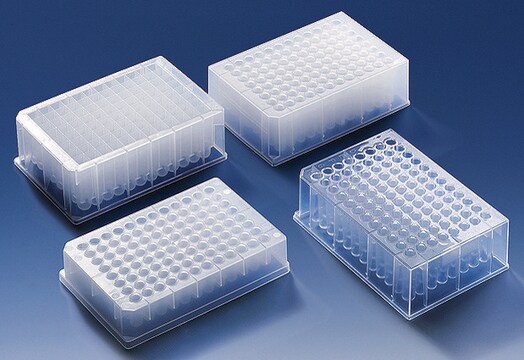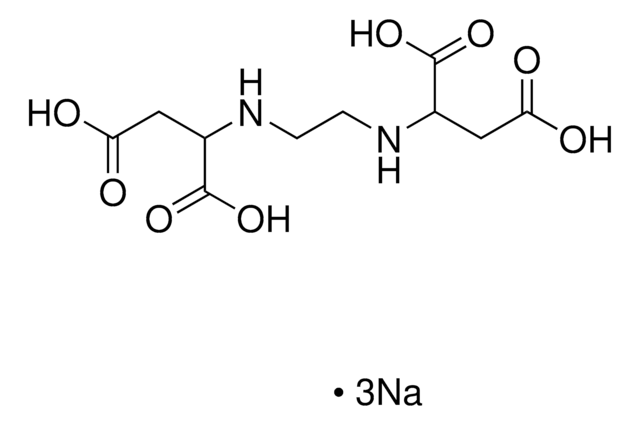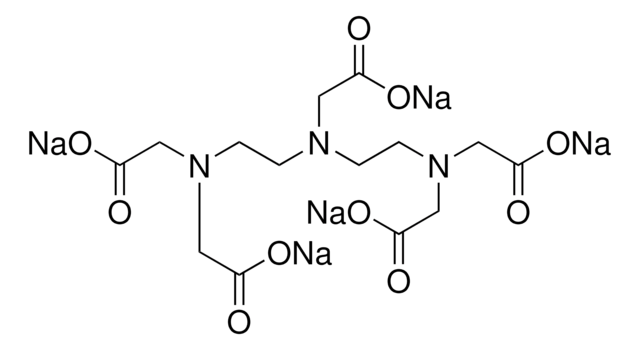36818
Diethylenetriaminepentakis(methylphosphonic acid) solution
technical, ~50% (T)
Synonym(s):
Diethylenetriamine-N,N,N′,N′′,N′′-penta(methylenephosphonic acid), Diethylenetriamine-N,N,N′,N′′,N′′-pentakis(methylenephosphonic acid), Diethylenetriaminepenta(methylenephosphonic acid), Diethylenetriaminopenta(methylenephosphonic acid), Ethylenetriaminepenta(methylenephosphonic acid), P,P′,P′′,P′′′-[[(Phosphonomethyl)imino]bis[2,1-ethanediylnitrilobis(methylene)]]tetrakis[phosphonic acid]
About This Item
Recommended Products
grade
technical
Quality Level
form
liquid
composition
HCl, 15%
H2O, ~35%
concentration
~50% (T)
functional group
amine
SMILES string
OP(O)(=O)CN(CCN(CP(O)(O)=O)CP(O)(O)=O)CCN(CP(O)(O)=O)CP(O)(O)=O
InChI
1S/C9H28N3O15P5/c13-28(14,15)5-10(1-3-11(6-29(16,17)18)7-30(19,20)21)2-4-12(8-31(22,23)24)9-32(25,26)27/h1-9H2,(H2,13,14,15)(H2,16,17,18)(H2,19,20,21)(H2,22,23,24)(H2,25,26,27)
InChI key
DUYCTCQXNHFCSJ-UHFFFAOYSA-N
General description
Application
Other Notes
Signal Word
Danger
Hazard Statements
Precautionary Statements
Hazard Classifications
Eye Dam. 1 - Met. Corr. 1 - Skin Irrit. 2 - STOT SE 3
Target Organs
Respiratory system
Storage Class Code
8A - Combustible corrosive hazardous materials
WGK
WGK 1
Flash Point(F)
Not applicable
Flash Point(C)
Not applicable
Personal Protective Equipment
Choose from one of the most recent versions:
Already Own This Product?
Find documentation for the products that you have recently purchased in the Document Library.
Customers Also Viewed
Our team of scientists has experience in all areas of research including Life Science, Material Science, Chemical Synthesis, Chromatography, Analytical and many others.
Contact Technical Service











